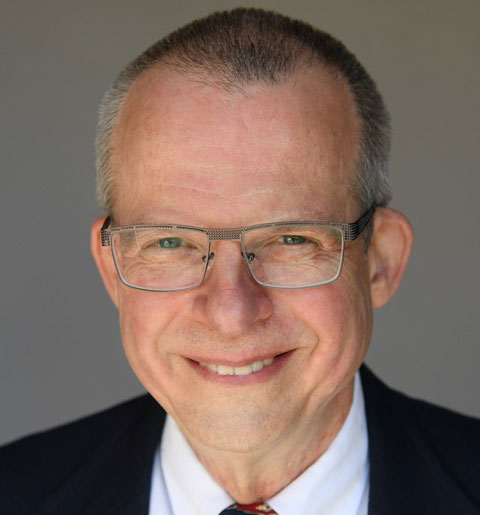ADHD Treatment Center in Tacoma, Washington
Attention deficit hyperactivity disorder (ADHD) is a neurobehavioral and developmental disorder in which individuals express pronounced characteristics, such as inattention, hyperactivity, or impulsivity. A person with ADHD will often be unable to focus his or her thoughts on complex problems or decisions. Individuals with ADHD may have difficulty paying attention and have trouble sitting still.
Additionally, people who have attention deficit hyperactivity disorder can be highly prone to distraction. They may talk a great deal without listening to what other people are saying or they may interrupt others frequently. Attention deficit hyperactivity disorder may also cause people to frequently engage in highly risky behaviors without fully contemplating the consequences of their actions.
People who have ADHD frequently have a high susceptibility towards and incidence of substance abuse. They may turn to drug or alcohol use as a way to manage their ADHD symptoms, which can be very difficult to live with and interfere with almost every aspect of their lives.
Thankfully, there is hope for those who are struggling with co-occurring attention deficit hyperactivity disorder and substance abuse issues. Here at Bayview Recovery Center, we offer treatment services for those living with co-occurring disorders. Our services for dual diagnoses and mental health conditions can make all the difference!

Signs and Symptoms of ADHD
Here at Bayview Recovery Center, we offer various treatment programs for mental health challenges. We are dedicated to the success of our patients and we offer the highest level of care and rehab for those who are struggling with mental illnesses.
While ADHD typically begins in the childhood or teenage years, this disorder does not merely affect children.
The symptoms of ADHD frequently affect adults, as well. ADHD has three primary classes of behaviors which include:
People with ADHD may exhibit persistent inattention in the following ways:
- Forgetfulness
- Frequently lose things
- Easily distracted
- Struggle to stay focused on tasks
- Difficulty completing tasks in order
- Inability to complete everyday tasks
- Fail to complete tasks after they start
- Disorganized
- Poor time management
- Poor listening skills
Sings of hyperactivity in people with ADHD include:
- Restlessness
- Constant, purposeless actions, such as wandering or pacing
- Must continually keep moving
- Uncontrollable fidgeting
- Constant talkativeness
Individuals who have ADHD also exhibit impulsivity in many ways, including:
- Taking unacceptable risks
- Interjecting themselves into social situations
- Ignoring social cues
- Inability to consider the results of their actions
- Constantly interrupting others
ADHD is also categorized into three main sub-types based on the above symptoms. They are:
- Predominantly inattentive
- Predominantly hyperactive or impulsive
- Combined, which exhibits both of the above tendencies
Since all of these symptoms can interfere with a person’s relationships and responsibilities, substance use often presents itself as a way for people with ADHD to manage these symptoms in place of professional help. However, drug and alcohol use do not treat ADHD. They only add new symptoms — including the possibility of a substance use disorder — to the problems they already face.

Treating ADHD and Substance Abuse
In many cases, people who have mental health conditions such as ADHD take medications to treat their symptoms. Medications such as Ritalin, Concerta, Adderall, Vyvanse, and Strattera are common medication options to treat ADHD symptoms.
But, although these medication options are typically prescribed, some people who have ADHD symptoms may develop a dependence on their medication. This can cause them to take more of their prescription pills than prescribed. Or, they may begin to take their medicine more frequently than recommended. This can even result in “doctor shopping” or perhaps using medication prescribed to someone else.
In other instances, people may use alcohol or drugs to self-medicate. They may try to treat ADHD symptoms by using these substances. While these methods may mask the symptoms of ADHD for a while, they do not treat ADHD. It takes a different approach to truly manage the symptoms of ADHD and achieve mental well-being.
Whether a person abuses medication or uses drugs and alcohol to address the symptoms of their mental health condition, addiction can develop. In such situations, people have what is known as a dual diagnosis. Having co-occurring disorders can be life-altering and incredibly challenging.
Fortunately, a dual diagnosis treatment center can help those who are living with ADHD and addiction. We offer such care here at Bayview Recovery Center, in addition to other treatment programs and therapeutic approaches.


ADHD Treatment Services and Therapy
When it comes to ADHD treatment and other mental health disorders, it is important to have individualized care. This is especially critical when addiction is also in the mix. Here at Bayview Recovery Center, our services and treatment program options can provide support and individualized care to those who come to our treatment facility. We treat clients with an evidence-based, scientifically-backed approach to ensure that people have a truly successful recovery.
Mental Health and Addiction Treatment Programs
Our Washington treatment center offers multiple outpatient treatment programs. These include the following:
- Partial hospitalization program: This structured outpatient program can offer an alternative to residential treatment or inpatient care. While residential treatment requires individuals to live at their treatment center, a PHP offers intensive care while allowing patients to live at home or in another sober facility.
- Intensive outpatient program: An IOP is another intensive and structured outpatient treatment program that, unlike residential treatment, does not require patients to live at their treatment center. Individuals can instead receive treatment during the day and return home afterward.
Mental Health and Addiction Treatment Therapies
We also offer various therapy options. We believe therapy plays a tremendous role in both addiction treatment and treatment for ADHD. Some of our therapy options include the following:
- Group therapy
- Trauma therapy
- Family counseling
- Individual therapy
- Cognitive behavioral therapy
- Dialectical behavior therapy
Our ADHD treatment center offers these therapeutic approaches because we know how beneficial they can be to those with mental health disorders and addiction. Therapy can help people develop coping skills, address underlying trauma, improve self-esteem, deal with depression, and manage their symptoms.
The evidence-based therapeutic services we provide can help people face the difficulties of mental illness and addiction problems head-on. We truly believe that everyone who suffers from addiction and co-occurring ADHD can be free from their struggles by receiving the best treatment available. This is why we strive to provide nothing less than the very best of care.
About
Contact Our Washington ADHD Treatment Center Today
ADHD can negatively affect an individual’s ability to live a healthy and enjoyable life. This is especially the case when a person suffers from co-occurring addiction. The difficulties of such a life can lead to the development of depression, anxiety, and other issues. But, if you are facing the challenges of ADHD, we are here to make your daily life better and improve your overall well-being.
If you are struggling with mental health issues or substance abuse issues and you’ve been looking for treatment centers in Washington State, we are here for you! Located in Tacoma, Washington, our comprehensive treatment facility addresses the needs of those who are living with co-occurring disorders.
We offer treatment for ADHD and many other mental illnesses in addition to substance use disorders. With our assistance, you can develop healthy coping skills, manage your symptoms, and overcome ADHD and addiction. Reach out to us today to learn more about our treatment options and how we can help you.
Looking for Treatment in Tacoma, WA?
Bayview Recovery, located in Tacoma, Washington, specializes in addiction recovery and has helped thousands of adult men and women safely navigate their way through addiction and back to sobriety. We are an addiction treatment and recovery center that treats substance abuse and co-occurring disorders.
Take a Look at Our Blogs
Despite their seemingly harmless appearance and widespread popularity, the dangers…
Have you noticed your partner or loved one's drinking habits…
Dave Cundiff, MD, MPH is an experienced leader in the field of Substance Use Disorder treatment. He works with patients suffering from Substance Use Disorder to evaluate their medication needs and prescribe treatments accordingly. In addition, he regularly participates in all-staff debriefing sessions involving peers, nurses, and other prescribers. He also reviews and advises on policies, procedures, and techniques for treating substance use disorder.










